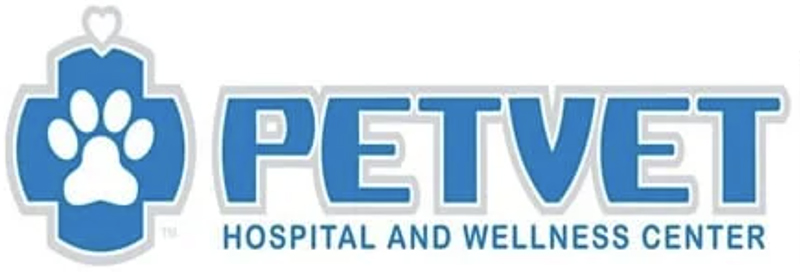Pet Spay and Neuter at Pet Vet Hospital and Wellness Center in Spokane Valley, WA
Pet Vet Hospital and Wellness Center provides essential spaying and neutering services in Spokane Valley, WA. Our skilled veterinarians perform these routine surgeries with precision, adhering to industry standards for the safety and comfort of your pets.
Routine Spay & Neuter Services in Spokane Valley, WA
At Pet Vet Hospital and Wellness Center, we prioritize the health and happiness of your pets. Our spay and neuter services are designed to provide safe and effective solutions for controlling pet populations and promoting their overall well-being. Led by experienced veterinarians, our clinic offers comprehensive spaying and neutering procedures tailored to meet each pet’s individual needs. We understand the importance of responsible pet ownership and strive to make these services accessible and affordable for all pet owners. With our compassionate care and expertise, you can trust that your pet will receive the highest standard of treatment in a comfortable and supportive environment.
When to Consider Spaying and Neutering
It’s recommended that your pet be spayed or neutered at around six months of age, although the timing may vary depending on the species and breed. Our veterinarians can provide personalized guidance to determine the best time for your pet’s spay or neuter procedure. We consider factors such as your pet’s health, behavior, and lifestyle to ensure the procedure is performed at the most appropriate time for their needs.
Importance of Pet Spay and Neuter
Spaying and neutering your pet offers numerous benefits for their health and well-being and the community at large. These procedures help control pet overpopulation and contribute to your pet’s long-term health and behavior. Spaying your female pet helps prevent uterine infections and breast tumors, which are common and often fatal in unspayed females. Neutering your male pet reduces the risk of certain reproductive cancers and eliminates unwanted behaviors such as roaming, marking, and aggression. Additionally, spaying and neutering can help reduce the number of homeless pets and alleviate the burden on animal shelters and rescue organizations.

The chart below compares what is offered at Pet Vet Hospital and Wellness Center to what you’ll get at most spay/neuter clinics:
| Procedure | Pet Vet Hospital and Wellness Center | Spay/Neuter Clinics |
| Will the Veterinarian use Inhalant Maintenance Anesthesia? | Yes | Typically use injectable drugs, which are cheaper but far less safe than inhalant anesthesia. |
| Wellness Testing Prior to Surgery Allows Veterinarians to evaluate pet’s internal health |
Yes | Few low-cost spay/neuter clinics have in-house diagnostic equipment to perform these safety tests. |
| Continually monitor Temperature, Pulse, and Respiration | Yes | Few low-cost spay/neuter clinics have blood pressure and EKG monitoring available. |
| IVC and Fluids Hydration, establishing emergency port, rinses, anesthesia |
Yes | With limited resources, this is a safety measure not typically offered in a spay/neuter clinic. |
| Pre and Post Surgical Pain Management Monitor and recover on heated bedding |
Yes | Many offer a minimal level of pain relief for an additional fee. We believe pain management should be mandatory and not an option. |
| Sterilized Surgery Suite Masked, owned, and gloved with fully autoclaved instruments |
Yes | Many low-cost surgical programs don’t have the funds to provide basic sterile gowns and gloves for each individual surgery. |
| Focused on Caring for Individual Pet Family Members | Yes | While spay and neuter clinics provide a valuable service to any community, their primary objective is to spay/neuter the masses, not provide individualized, personal care. |
We are an AAHA AAHA-certified hospital that ensures the highest surgical standards. Click here to learn more.
What to Know When Considering Spay or Neuter
Important Questions to Ask Your Veterinarian
Here are some questions to ask to determine if a veterinarian, whether in a shelter setting or private practice, is operating under the best quality surgical methods.
- What type of maintenance anesthesia is used?
Injectable drugs are cheaper but far less safe than inhalant anesthesia, which can be adjusted continuously throughout surgery. Recovery from inhalant anesthesia is also smoother and safer for the dog. - Is pre-surgical blood work required or an option?
You would be hard-pressed to find a human hospital that will perform elective surgery on you without baseline blood work. - Are pain medications required?
If not, this is a red flag. Surgery is painful, and there are no excuses for not prescribing pain meds. - How is the dog’s progress monitored before, during, and after the surgery?
Few low-cost spay and neuter clinics have blood pressure and EKG monitoring available. As a result, this is an area where private pet hospitals will typically excel over many spay-neuter clinics. This continuous monitoring helps keep complication rates low. - Is an IV catheter placed before surgery, and are IV fluids provided throughout surgery?
Using IV fluids is a sign of high-quality surgery. At a minimum, we strongly encourage pet parents to use a clinic that at least places an IV catheter for all routine surgeries. This gives the veterinary team immediate access to the patient’s blood supply should an emergency arise. - Will a sterile environment and supplies be used for each unique dog?
Many low-cost surgical programs just don’t have the funds to provide their surgeons with basic sterile gowns and gloves for each surgery. Pet Vet Hospital and Wellness Center is AAHA-certified and adhere to the highest standards. Click here to learn more.

